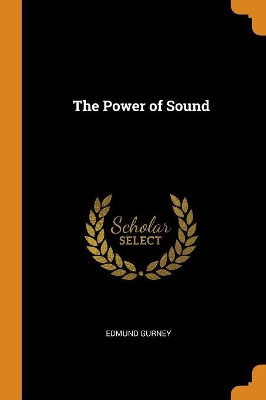Edmund Gurney (1847-88) is today best known for his work on psychical research, but from a young age he harboured the ambition to be a composer and performer. Frustrated in this aim, he began writing on the philosophy and psychology of music. This work of 1880 was an attempt to apply a strictly scientific method of enquiry to music, and it is regarded as one of the most important and original treatises from the nineteenth century on musical aesthetics. Gurney discusses the sensations of pleasure and pain in relation to the senses, and goes on to examine how the listener differentiates between 'noises' and 'tones'. He explores whether there is an elemental difference between a 'good' and a 'bad' melody, the ultimate futility of the critic trying to describe music, and the 'moral' conclusion to be drawn from a preference for the music of Rossini over that of Beethoven.
- ISBN10 0341830380
- ISBN13 9780341830382
- Publish Date 8 October 2018 (first published December 1967)
- Publish Status Active
- Imprint Franklin Classics
- Format Paperback (US Trade)
- Pages 578
- Language English
